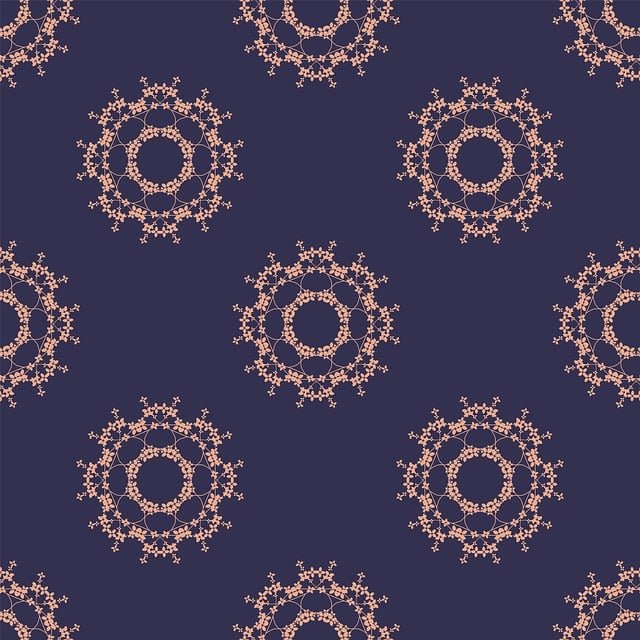What New Trends Are Emerging in Healthcare App Design?
First off, user experience (UX) is taking center stage. Designers are now focusing on creating intuitive interfaces that feel as natural as scrolling through your social media feed. Imagine an app that understands your needs before you even type them in—like a friend who just gets you! This trend is all about making healthcare accessible and less intimidating, especially for those who might not be tech-savvy.
Then there’s the rise of telehealth features. With virtual consultations becoming the norm, apps are integrating video calls and chat functionalities. It’s like having a doctor on speed dial! This shift not only saves time but also breaks down geographical barriers, allowing patients to connect with healthcare professionals from anywhere in the world.
And let’s not forget about personalization. Today’s apps are harnessing the power of AI to offer tailored health insights. Think of it as having a personal trainer who knows your strengths and weaknesses. These apps analyze your data to provide customized recommendations, making your health journey feel uniquely yours.
Lastly, security is a hot topic. With all this sensitive data floating around, users want to feel safe. Developers are stepping up their game, implementing robust security measures that protect your information like a vault. After all, trust is key in healthcare!
Revolutionizing Care: The Top 5 Trends Shaping the Future of Healthcare App Design
First up, user-centric design is taking center stage. Think about it: when was the last time you enjoyed using a clunky app? Exactly! Designers are now focusing on creating intuitive interfaces that make navigation a breeze. It’s like having a personal guide through the maze of healthcare options, ensuring you find what you need without the headache.
Next, we have telehealth integration. Picture this: you’re feeling under the weather, but instead of waiting in a crowded clinic, you can connect with your doctor from the comfort of your couch. This trend is not just convenient; it’s transforming how we access care, making it more accessible for everyone.
Then there’s the rise of personalized health tracking. Apps are now equipped with features that allow users to monitor their health metrics in real-time. It’s like having a mini health coach in your pocket, nudging you towards better habits and keeping you accountable.

Let’s not forget about gamification! Who said healthcare has to be boring? By incorporating game-like elements, apps are making health management fun and engaging. It’s like turning your wellness journey into a game where you earn rewards for hitting your goals.
Lastly, data security is becoming a top priority. With all this personal information floating around, it’s crucial to keep it safe. Developers are stepping up their game, ensuring that your data is protected like a treasure chest, giving you peace of mind while you navigate your health journey.
From Wearables to AI: How Technology is Transforming Healthcare App Interfaces
Think about it: wearables like fitness trackers and smartwatches are not just fancy gadgets; they’re your personal health assistants. They collect data in real-time, giving you insights that were once only available during a doctor’s visit. With a simple tap on your app, you can track your steps, monitor your heart rate, and even receive reminders to take your medication. It’s like having a mini doctor on your wrist!
Now, let’s sprinkle in some AI magic. Imagine an app that learns your habits and preferences, offering personalized health tips tailored just for you. That’s the power of artificial intelligence! These smart algorithms analyze your data, predict potential health issues, and suggest lifestyle changes that can keep you on track. It’s like having a health coach who knows you inside and out, guiding you every step of the way.
And the best part? The interfaces of these apps are becoming more engaging and visually appealing. Gone are the days of clunky designs and confusing menus. Today’s healthcare apps are sleek, colorful, and user-friendly, making it easy for anyone—tech-savvy or not—to navigate their health journey. It’s as if the app is saying, “Hey, I’m here to help you, and I promise it won’t be a hassle!”
So, whether you’re tracking your fitness goals or managing a chronic condition, technology is making healthcare more accessible and personalized. Isn’t it amazing how far we’ve come?
User-Centric Design: The New Standard in Healthcare App Development
User-centric design focuses on creating apps that prioritize the user’s experience. It’s like crafting a tailored suit instead of a one-size-fits-all outfit. When developers put themselves in the shoes of patients and healthcare providers, they can create solutions that are not only functional but also enjoyable to use. Think about it: when was the last time you enjoyed navigating a clunky app? Exactly! A seamless experience can make all the difference in managing health.
Consider the features that truly matter. Easy navigation, clear information, and personalized recommendations can transform a daunting task—like booking an appointment or tracking medication—into a breeze. It’s like having a personal assistant in your pocket, guiding you every step of the way. And let’s not forget about accessibility. A user-centric approach ensures that everyone, regardless of age or tech-savviness, can benefit from these innovations.
Moreover, feedback loops are crucial. Developers who actively seek user input can refine their apps to meet real-world needs. It’s like having a conversation where both parties learn and grow. This iterative process not only enhances the app but also builds trust with users, making them feel valued and heard.
In a landscape where health is paramount, user-centric design isn’t just a trend; it’s a necessity. As we continue to embrace this approach, the future of healthcare apps looks brighter than ever, promising a more connected and compassionate experience for all.
Telehealth Takes Center Stage: Innovative Features in Modern Healthcare Apps
First off, let’s talk about convenience. Remember the last time you had to sit in a waiting room, flipping through outdated magazines? With telehealth, those days are gone. You can schedule a virtual appointment from the comfort of your couch, in your pajamas, sipping on your favorite coffee. It’s like having a doctor in your pocket!
But it’s not just about convenience; it’s also about personalization. Many modern healthcare apps use AI to tailor your experience. They analyze your health data and provide recommendations that feel like they were made just for you. It’s like having a personal health coach who knows your history and goals, guiding you every step of the way.
And let’s not forget about the interactive features. Picture this: you’re chatting with your doctor via video call, and they can share their screen to show you exactly what they’re talking about. It’s like having a front-row seat to your own health journey. Plus, many apps now offer chatbots that can answer your questions 24/7, so you’re never left in the dark.
Security is another big deal. With all this personal information floating around, you want to know it’s safe, right? Modern healthcare apps are stepping up their game with top-notch encryption and privacy measures, ensuring your data is as secure as a vault.
So, whether you’re managing a chronic condition or just need a quick consultation, telehealth is revolutionizing the way we access healthcare, making it more engaging, efficient, and downright enjoyable.
The Rise of Personalization: Tailoring Healthcare Apps to Individual Needs
Think about it: when you open an app that remembers your preferences, your medical history, and even your lifestyle choices, it’s like having a personal health assistant right in your pocket. These apps analyze your data, learning what works best for you. It’s like having a tailored suit instead of a generic outfit—everything fits just right!

But why is this personalization so crucial? Well, consider how different we all are. What works for one person might not work for another. Personalization in healthcare apps means you get recommendations that resonate with your unique health profile. Whether it’s tracking your workouts, managing your medications, or even suggesting meal plans, these apps are designed to adapt to your life, not the other way around.
And let’s not forget the power of motivation. When an app celebrates your milestones or nudges you gently when you’re slacking off, it feels like having a cheerleader on your side. This kind of engagement can make all the difference in sticking to your health goals. It’s like having a friend who knows exactly when to push you and when to give you a pat on the back.
As technology continues to advance, the potential for personalization in healthcare apps is limitless. Imagine AI-driven insights that predict your health needs before you even realize them! The future is bright, and it’s all about you.
